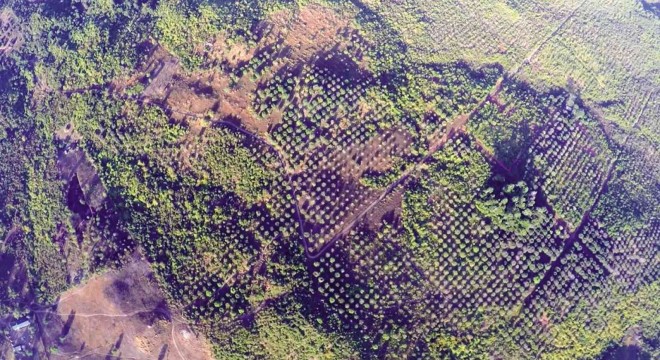NCCA warns on big push for oil palm plantations
The National Commission for Culture and the Arts (NCCA) has raised the alarm over the provincial government’s big push to open up Palawan’s farming areas in its southern region to oil palm plantations, warning local officials on its negative impact on the province’s historical heritage.
“This will only benefit a few and in the end you will destroy not just your resources but your rich cultural heritage,” NCCA chair Felipe de Leon Jr. told the Inquirer on Thursday.
His agency was in Palawan to launch a funding grant facility intended to preserve the country’s indigenous local culture with the province as one of its priority sites.
De Leon was referring to current efforts of the provincial government to map out at least 20,000 hectares of oil palm plantations in southern Palawan as a strategy to address poverty in the rural areas.
In the last two years, at least 6,000 ha of idle lands, as well as existing agricultural farms, have been converted to oil palm plantations, mostly in the municipalities of Sofronio Española and Brooke’s Point.
Article continues after this advertisementDe Leon expressed concern over reports that lands of indigenous communities are being converted to oil palm plantations and mining areas. He said this would threaten in particular the traditional cultures of Palawan indigenous communities which is a concern of the NCCA.
Article continues after this advertisement“We are very aware of this problem and it seems to lay on predatory corporate greed. We will have to fight this with all our might,” he said.
The Inquirer tried but failed to reach Gov. Jose Alvarez for a comment.
NCCA officials expressed concerns that the government was way behind the efforts to preserve Palawan’s cultural heritage in the wake of rapid agro-industrial development in the province.
De Leon cited in particular the Palaw-an tribes as having “a very rich culture” that has not yet been addressed to ensure its conservation. “Scientists who have studied the Palaw-ans have become famous for their work and the world has appreciated the rich culture of Palawan. We need to be aware of what we have and take efforts to conserve them,” he said.
NCCA legal counsel Rose Beatrix Cruz-Angeles said the agency was prepared to take legal action against the incursions of oil palm plantations into indigenous communities as soon as they receive a petition from them.
“We’re up against people who destroy, whether it is in Manila or in Palawan. The NCCA is usually a voice in the wilderness among government agencies, as in the case against DMCI and its Torre de Manila. We were the only agency who did something,” Angeles said.
Asked if the NCCA would also support the campaign against putting up a coal plant in Palawan, which is a project of DMCI, Angeles said the agency “will protect all the sacred spaces in Palawan and, yes, expect us to be there.” Redempto D. Anda
